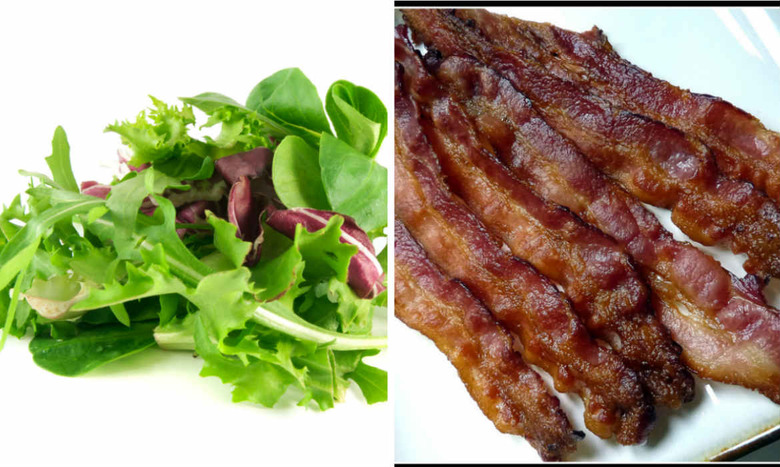A Vegetarian Diet Is More Harmful To The Environment, New Research Suggests
Besides animal welfare and religious reasons, one of the top arguments for vegetarianism has conventionally been to save the environment. After all, we have been told that eating beef is basically like driving an SUV: fun at the time, but detrimental to our collective carbon footprint.However, new research from Carnegie Melon University scientists suggests that the opposite may in fact be true. The study claims that lettuce is three times worse than bacon for carbon emissions. In short, your green-conscious Caesar salad could seriously be harming the Earth.
Researchers analyzed the environmental impact per calorie of different foods in terms of energy cost, water use, and emissions. The results found that while livestock contributes to an enormous amount of carbon emissions (around 51 percent), on an individual basis, healthier foods, particularly vegetables, are worse for our carbon footprint. From farm to refrigerator shelf, vegetables usually take on more resources than meat, particularly water-heavy vegetables like eggplant, celery, and cucumbers, as compared with pork and chicken.
If everyone ate the recommended daily doses of fruits, vegetables, seafood, and dairy, energy use would go up 38 percent.
"What is good for us health-wise isn't always what's best for the environment," Michelle Tom, co-author of the study said. "That's important for public officials to know and for them to be cognizant of these trade-offs as they develop or continue to develop dietary guidelines in the future."
